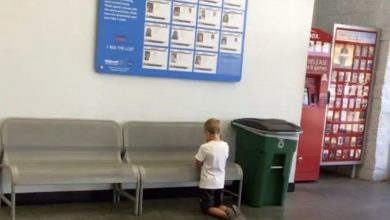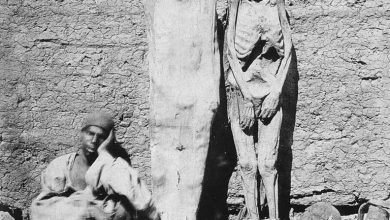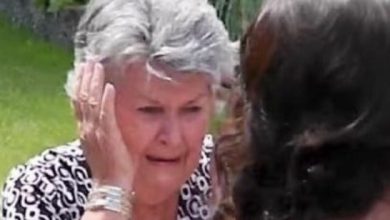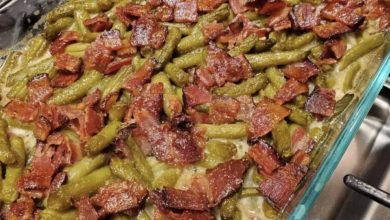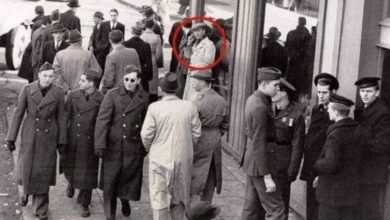Parents Made a Sacrifice and Their Son Discovered the Truth the Next Morning
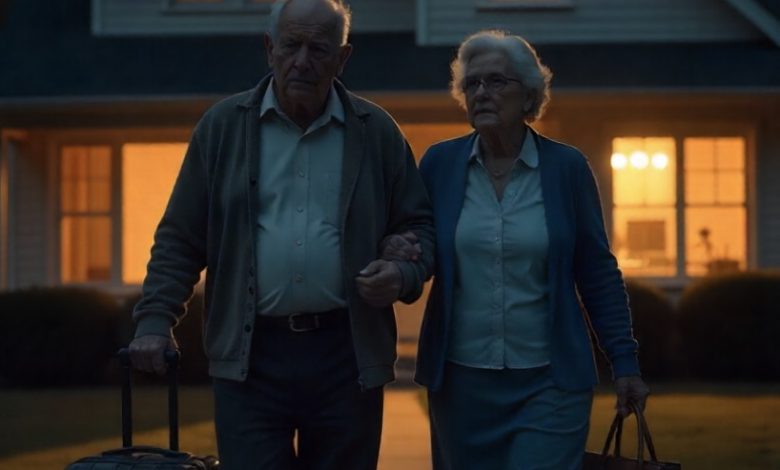
When Edgar and Miriam Thornfield sold their home, it was not because they wanted to. It was because life had cornered them. They gave up the house they had loved for forty-seven years, the place where their children had grown up, to save their eldest son Jasper’s struggling business.
At first, they told themselves it was just a house, just walls and bricks. But deep down, they knew it was far more than that. It was their history, their safety, their identity. Still, they made the sacrifice—because that is what parents do. They thought they would find peace in Jasper’s home. Instead, they found something darker, something that made them fear for their very freedom.
The House They Left Behind
The Thornfield home on Maple Avenue had stood proudly for decades. It was a Victorian with a wraparound porch and tall windows that caught the morning sun. Edgar had spent years repairing its every corner—fixing the roof, sanding the floors, building shelves and furniture that made the place truly theirs. Miriam’s garden had always been the envy of the neighborhood, bursting with roses, tulips, and sunflowers in summer.
Inside, their children had grown: Jasper, the responsible one; Daniel, the adventurous middle child; and Rebecca, their artistic daughter who eventually left for Melbourne. The house was full of memories—birthday parties, late-night talks, Christmas mornings, and the quiet comfort of ordinary days.
But then life began tearing those memories apart. Daniel died in a military crash overseas. Rebecca moved to Australia permanently. And Edgar, stubborn as ever, climbed onto the roof one rainy day to patch a leak, only to fall and break his hip. The hospital bills were crushing.
At the same time, Jasper’s custom furniture business collapsed during a downturn. He was drowning in debt, foreclosure notices piling up.
“We’ll sell the house,” Miriam said quietly one evening, as Edgar stared at the unpaid bills. “It’s too big for just us anyway.”
Edgar looked at her, his heart breaking. “And your garden?”
“Flowers can be replanted,” she said softly. “Memories travel with us. We still have each other.”
So they sold it, their last true anchor. The money paid Edgar’s medical debt and kept Jasper’s home safe. But in exchange, they gave up their independence.
Life in Jasper’s Home
Jasper lived with his wife, Josie, in a five-bedroom modern house in Oakridge Estates, a wealthy suburban neighborhood. It had more than enough space. Edgar and Miriam were given a guest room. It was clean but sterile—white walls, no warmth, no sign of family history.
At first, Josie pretended kindness. She cooked them a welcome dinner, said all the right words, and even hugged Miriam. The grandchildren, Ivy and Finn, adored having their grandparents close. They would sneak into their room each morning for cuddles and bedtime stories.
But the mask soon slipped.
Miriam’s favorite armchair was moved to the basement, replaced by a new entertainment unit Josie wanted. Edgar’s woodworking tools were packed away and shoved behind storage boxes. At meals, Josie’s “concern” came wrapped in insults.
“Edgar, of course you can have more potatoes,” she would say, smiling tightly. “But at your age, portion control is important. My trainer says too much starch can be dangerous for men in their seventies.”
Or: “Miriam, I switched to almond milk for all of us. Dairy can cause memory problems in seniors. Better to be safe.”
Jasper sat quietly during these moments, his eyes darting between his parents and his wife. He rarely defended them. When he did, Josie would cut him off with a sharp tone, and he would fall silent.
The children noticed what their father ignored. “Mommy, why do you make a face when Grandma hugs me?” Ivy asked one night.
Josie forced a laugh. “What face, sweetheart?”
“You know,” Finn added innocently, “like when I eat broccoli and pretend I like it.”
Josie’s smile froze.
The Chilling Discovery
Months passed, and Edgar and Miriam learned to walk softly, to stay quiet, to avoid Josie’s disapproval. But one night, an overheard conversation shattered everything.
It was past 11 PM. Through an old heating vent, their voices carried into Edgar and Miriam’s room.
“I toured Sunset Manor today,” Josie said. “It’s perfect for their needs. Forty-two hundred a month.”
“Josie, their insurance won’t even cover half,” Jasper said, his voice tired.
“Listen carefully,” Josie replied, her tone dropping. “Once they’re declared incompetent to handle their finances, we become their legal guardians. Dr. Martinez already agrees. Your father’s depression after his fall, plus your mother’s little ‘memory lapses’? It will be enough. The competency hearing can be scheduled this week.”
“You’re building a case against my parents?” Jasper asked, disbelief in his voice.
“I’m documenting real concerns,” Josie snapped. “For their safety—and ours. When guardianship is official, we’ll control their pension, their Social Security, even the money left from selling their house. That’s what responsible children do.”
Edgar and Miriam lay frozen in bed, clutching each other’s hands. Their son’s wife was planning to strip them of their freedom, their dignity, and their future—all under the pretense of care.
The Escape
“We’re leaving,” Edgar whispered, his voice harder than it had been in years. “I won’t let her put us in a home.”
For three days, they planned quietly. Miriam sold a few pieces of jewelry her mother had left her. Edgar withdrew the small amount he still had in a volunteer fund Josie didn’t know about. Together, they gathered a little over $1,000.
On the third night, they acted. Before leaving, Miriam baked cookies for Ivy, and Edgar carved a small wooden bird for Finn. They placed the gifts on the children’s beds with loving notes.
Then, just after midnight, they slipped out the side door with two small suitcases. The night was cool, the streets silent.
“No looking back,” Miriam whispered.
“Only forward,” Edgar answered.
They walked to the bus stop, their hearts pounding. By dawn, they were sitting in a small-town diner miles away, sipping coffee, trying to figure out their next steps.
What Jasper Found
The next morning, Jasper walked into their empty room. The bed was neatly made, the closet cleared. On the desk lay a sealed envelope.
Inside was a letter. Edgar had written it in his careful handwriting:
“Son, we gave up our home to save yours. We love you, but we cannot stay where our dignity is stripped away piece by piece. Do not search for us until you are ready to open your eyes to the truth about your wife. We are not gone forever. But we cannot live as prisoners in the name of care. Love, Dad and Mom.”
Beside the letter was another envelope. It was full of documents—notes Josie had kept, forms partially filled, evidence of her plan to declare them legally incompetent.
Jasper sat on the edge of the bed, his hands shaking. For the first time, he saw what his parents had been enduring. And for the first time, he questioned the woman he had promised his life to.
A Son’s Awakening
The discovery tore Jasper apart. His parents’ absence left the house colder. The sight of his children holding the wooden bird and the cookies with tears in their eyes broke him. Slowly, he began to uncover more—hidden files, emails Josie had written, and conversations she had had behind his back.
The truth hit him like a storm. His wife had been manipulating not just his parents, but him as well.
And in that realization, Jasper finally understood: the people who had sacrificed everything for him deserved his loyalty, not silence.
The Thornfields’ escape was not just an act of survival. It was a reminder that dignity cannot be sold, not even for family. And for Jasper, it was the moment that forced him to choose between the comfortable lie he had been living and the painful truth waiting in the empty room upstairs.


